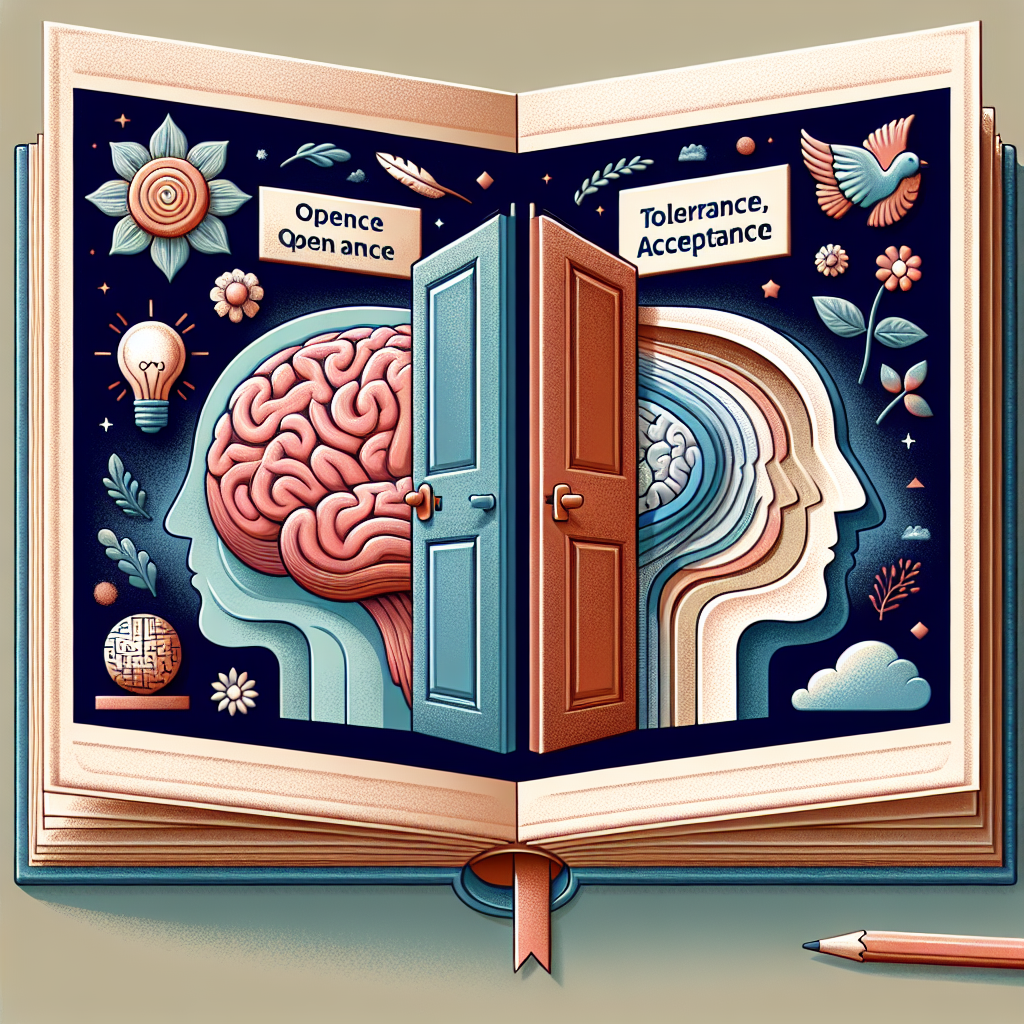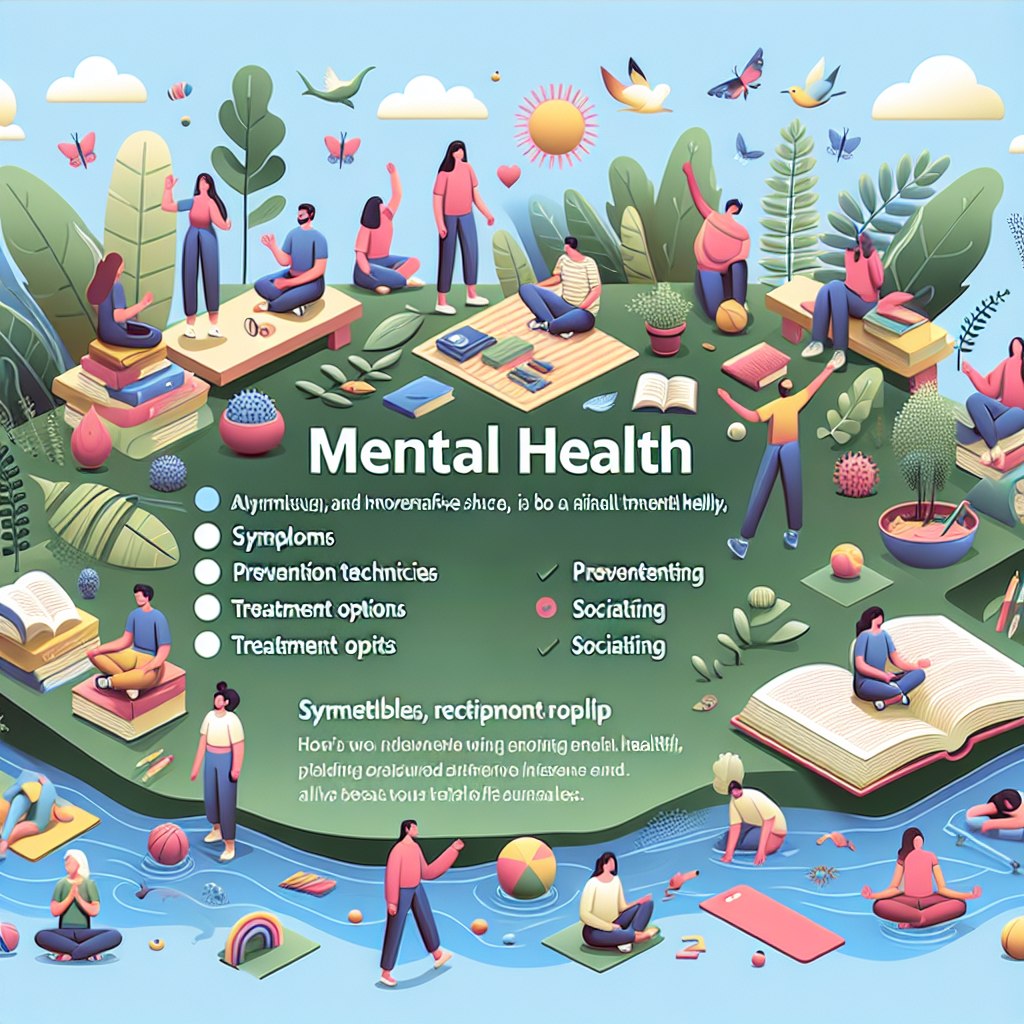Understanding Mental Health: What You Need to Know

Learn more about understanding mental health and what you need to know. Empower yourself with knowledge and take the first step towards a healthier mind. Click here to start your journey.
Decoding the Complexities: A Comprehensive Guide to Understanding Mental Health
Understanding mental health is a complex task that requires a comprehensive approach. It is a multifaceted concept that encompasses our emotional, psychological, and social well-being. It affects how we think, feel, and act, influencing how we handle stress, relate to others, and make choices. Mental health is important at every stage of life, from childhood and adolescence through adulthood.
Mental health disorders are common; in fact, they are among the most common health conditions worldwide. According to the World Health Organization, one in four people will be affected by a mental or neurological disorder at some point in their lives. Despite this prevalence, there is still a significant stigma attached to mental health issues, which can prevent individuals from seeking the help they need.
Mental health disorders can manifest in various ways, including changes in mood, thinking, or behavior. Some common types of mental health disorders include depression, anxiety disorders, schizophrenia, and bipolar disorder. Each of these conditions has its own unique set of symptoms, but they all interfere with a person’s ability to function effectively in daily life.
Depression, for instance, is characterized by persistent feelings of sadness and a loss of interest in activities once enjoyed. It can lead to a variety of emotional and physical problems and can decrease a person’s ability to function at work and at home. Anxiety disorders, on the other hand, involve excessive fear or anxiety that is difficult to control and interferes with daily activities.
Schizophrenia is a severe mental disorder that affects how a person thinks, feels, and behaves. People with schizophrenia may seem like they have lost touch with reality, which can be terrifying to them and those around them. Bipolar disorder, also known as manic-depressive illness, is a brain disorder that causes unusual shifts in mood, energy, activity levels, and the ability to carry out day-to-day tasks.
Understanding mental health also involves recognizing the factors that can contribute to mental health disorders. These can include biological factors, such as genetics and brain chemistry, life experiences, such as trauma or abuse, and family history of mental health problems.
Treatment for mental health disorders typically involves a combination of medication and psychotherapy. Medications can help manage the symptoms of mental health disorders, while psychotherapy, or talk therapy, can help individuals understand and manage their condition. In some cases, lifestyle changes, such as regular physical activity and a healthy diet, can also help improve mental health.
Despite the complexities of mental health, it is crucial to remember that mental health disorders are treatable, and many people with these conditions lead full and productive lives. Early intervention and treatment can significantly improve the prognosis for individuals with mental health disorders.
In conclusion, understanding mental health requires a comprehensive approach that considers the various types of mental health disorders, the factors that contribute to these conditions, and the available treatments. By increasing our understanding of mental health, we can help reduce the stigma associated with these conditions and encourage individuals to seek the help they need.
Breaking Down Barriers: Essential Knowledge for Understanding Mental Health

Understanding mental health is a critical aspect of overall well-being, yet it is often overlooked or misunderstood due to societal stigma and lack of awareness. This article aims to break down barriers and provide essential knowledge for understanding mental health, thereby promoting a more informed and empathetic society.
Mental health, as defined by the World Health Organization, is a state of well-being in which an individual realizes his or her own abilities, can cope with the normal stresses of life, can work productively and fruitfully, and is able to make a contribution to his or her community. It is not merely the absence of mental disorders or disabilities. It is an integral part of health, and there is a growing recognition of its importance on a global scale.
One of the most significant barriers to understanding mental health is the stigma associated with mental illness. This stigma often stems from misconceptions and stereotypes, leading to discrimination and isolation of those affected. It is crucial to understand that mental illnesses are real, common, and treatable. They are not a sign of weakness or a character flaw. They are medical conditions that have nothing to do with a person’s intelligence, talent, or value.
Another barrier is the lack of awareness and education about mental health. Many people are not aware of the signs and symptoms of mental illnesses, and they may not know how to seek help or support others who are struggling. Mental health education should be a priority in schools, workplaces, and communities to increase understanding and reduce stigma.
Mental health is also closely linked with physical health. They are not separate entities, but rather interconnected aspects of overall health. Mental illnesses can lead to physical health problems, and vice versa. For example, depression can increase the risk of chronic diseases such as heart disease, and chronic diseases can increase the risk of mental health problems. Therefore, a holistic approach to health that includes both physical and mental health is essential.
Treatment for mental illnesses is available and effective, but many people do not seek help due to stigma, lack of awareness, or lack of access to care. It is important to know that help is available, and seeking help is a sign of strength, not weakness. Treatment may include psychotherapy (talk therapy), medication, lifestyle changes, and other methods. Everyone is different, so what works for one person may not work for another. It is important to work with a healthcare provider to find the best treatment plan.
In conclusion, understanding mental health is crucial for promoting well-being, reducing stigma, and supporting those who are struggling. It requires breaking down barriers, increasing awareness and education, recognizing the link between physical and mental health, and promoting access to care. Mental health is not something to be ashamed of, but rather something to be understood, respected, and cared for. By increasing our understanding of mental health, we can create a more empathetic and supportive society for all.
Unveiling the Truth: What Everyone Needs to Know About Mental Health
Understanding mental health is a critical aspect of overall well-being, yet it remains a topic shrouded in misconceptions and stigma. This article aims to unveil the truth about mental health, providing essential information that everyone needs to know.
Mental health, as defined by the World Health Organization, is a state of well-being in which an individual realizes his or her own abilities, can cope with the normal stresses of life, can work productively and fruitfully, and is able to make a contribution to his or her community. It is not merely the absence of mental disorders or disabilities. Mental health is an integral part of our overall health; indeed, there is no health without mental health.
One of the most common misconceptions about mental health is that it only refers to mental health disorders, such as depression, anxiety, and schizophrenia. While these conditions are part of the mental health spectrum, they do not define it entirely. Mental health encompasses our emotional, psychological, and social well-being. It affects how we think, feel, and act. It also helps determine how we handle stress, relate to others, and make choices.
Another misconception is that mental health problems are a sign of weakness or are something that individuals can simply “snap out of.” The reality is that mental health disorders are a result of a complex interplay of genetic, biological, personality, and environmental factors. They are not a character flaw or a sign of personal weakness. Just like physical health problems, mental health problems cannot be overcome through willpower alone. They require appropriate care and treatment.
It is also important to understand that mental health is not static. It is a dynamic and fluid aspect of our lives that can change over time. Factors such as stress, traumatic events, or changes in our physical health can all impact our mental health. Therefore, maintaining mental health requires ongoing effort and attention, just like maintaining physical health.
Despite the prevalence of mental health issues, many people do not seek help due to stigma and discrimination. This is unfortunate, as effective treatments are available for most mental health disorders. Mental health services can include psychotherapy (talk therapy), medication, peer support, and community services. With the right treatment, individuals with mental health disorders can lead full and productive lives.
In conclusion, understanding mental health is crucial for everyone, not just for those who are living with mental health disorders. Mental health is a vital part of our overall health and well-being. It is about our emotions, our thinking, our social connections, and our ability to manage life’s ups and downs. It is not a sign of weakness, and it is not something that can be overcome through willpower alone. Mental health disorders are real, common, and treatable. By increasing our understanding of mental health, we can help reduce the stigma associated with mental health disorders, encourage people to seek help when they need it, and promote mental health and well-being for all.